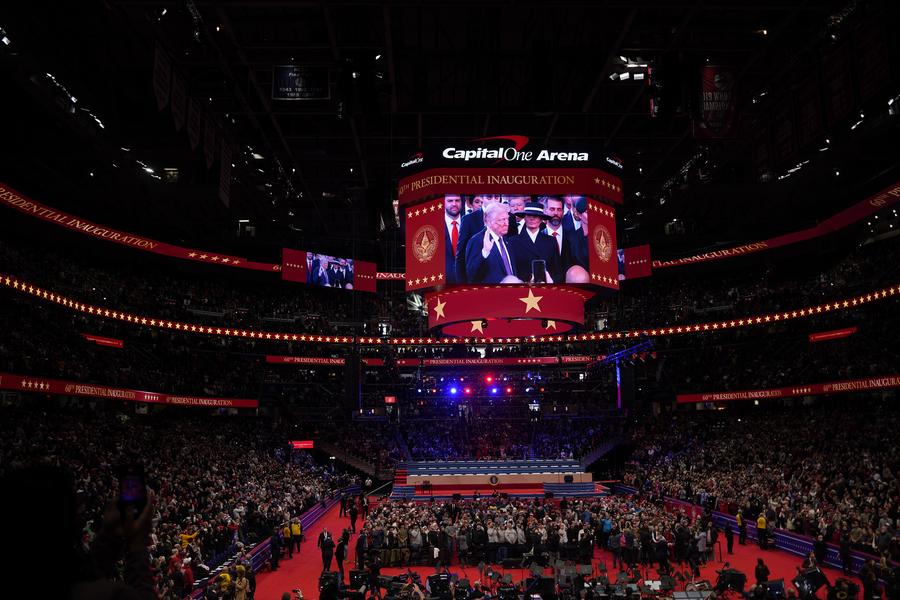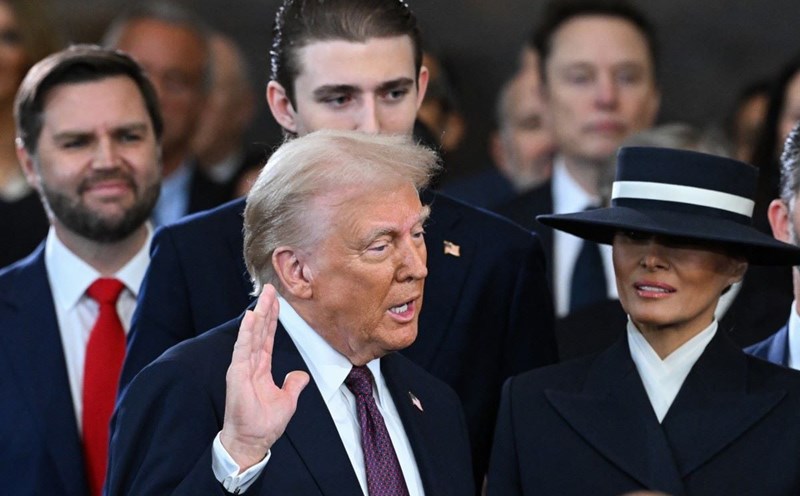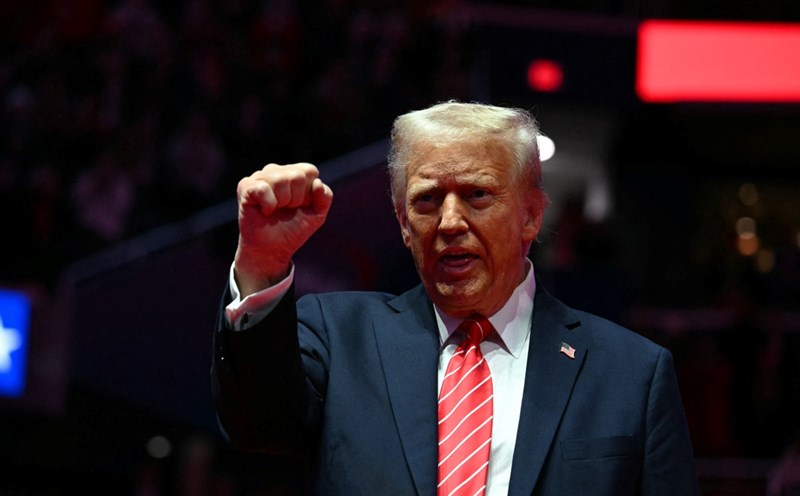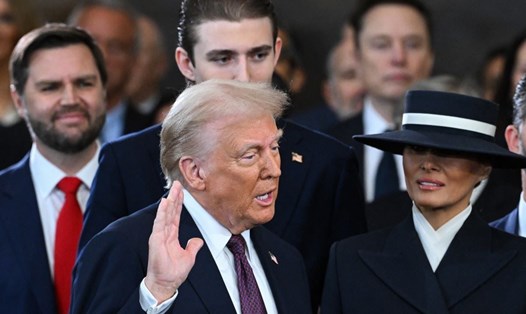Donald Trump was sworn in as the 47th President of the United States amid expectations that he would reshape America with a sweeping domestic and foreign policy agenda.
Donald Trump's inauguration took place amid sunny weather but sub-zero temperatures. As a result, the swearing-in ceremony took place indoors at the Capitol Rotunda and the traditional inaugural parade was replaced by an event at a sports arena in downtown Washington DC.
The last time weather affected a US presidential inauguration was when Republican President Ronald Reagan was sworn in for a second time in 1985.
“America’s golden age begins now. From this day forward, our country will thrive and be respected all over the world again,” Donald Trump said in his inaugural address.
At 78, Donald Trump became the oldest president ever to hold office. His journey to the White House was paved by winning both the Electoral College and the popular vote in the US presidential election on November 5, 2024, after surviving two assassination attempts.
Impeached twice during his first presidential term (2017-2021), Donald Trump is the only US president to take office with criminal charges.
Donald Trump took office with Republican majorities in both houses of Congress and a conservative-controlled Supreme Court that supported his populist and nationalist agenda.
Donald Trump is expected to get to work soon after taking the oath of office, signing a series of executive orders and directives to launch key priorities. US media reported that up to 200 executive actions have been prepared for him to sign in his first week in office.

One particular decision would have global ramifications: A commitment to impose tariffs on US trading partners could range from targeted measures on key industries and sectors to blanket tariffs on all imports into the US.
Mr Trump has declared a national emergency at the southern border of the US. Widespread deportations of illegal immigrants are expected.
He is also expected to withdraw the US from the Paris climate accord and expand oil and gas drilling; he is likely to repeal his predecessor Joe Biden’s renewable energy subsidies and eliminate sales tax breaks for electric vehicles. He would also repeal policies that encourage diversity and inclusion (DEI) in the federal workforce. Such DEI policies were discontinued at some companies, including McDonald’s, Ford, and Walmart, weeks before Trump took office.
Along with family members and cabinet officials, America’s tech elite — Tesla CEO Elon Musk, Meta’s Mark Zuckerberg and Amazon’s Jeff Bezos, Apple’s Tim Cook, Google’s Sundar Pichai and OpenAI’s Sam Altman — took pride of place at Donald Trump’s inauguration. TikTok CEO Chew Shou Zi also attended the event, despite limited seating in the Capitol Rotunda, which holds about 600 people.
A day before his inauguration, Donald Trump allowed TikTok to resume operations, which had been temporarily suspended due to a US ban on national security grounds. Trump suggested the US should take a 50% stake in the popular social media platform to satisfy a law requiring the Chinese-owned app to divest its US operations.
Former US Presidents Bill Clinton, George W Bush and Barack Obama attended President Donald Trump's inauguration but did not attend the traditional lunch with the new president. Mr. Mike Pence - Mr. Trump's Vice President during his first term - also appeared at the inauguration this time.
Asia's richest man - Mr. Mukesh Ambani, Chairman of India's largest corporation Reliance Industries - was also present in the audience.
Former First Lady Michelle Obama and former House Speaker Nancy Pelosi did not attend the event. At least 20 lawmakers also chose not to attend for political and personal reasons.
Chinese Vice President Han Zheng and other world leaders attended Donald Trump's inauguration in person, including Argentine President Javier Milei and Italian Prime Minister Giorgia Meloni.











